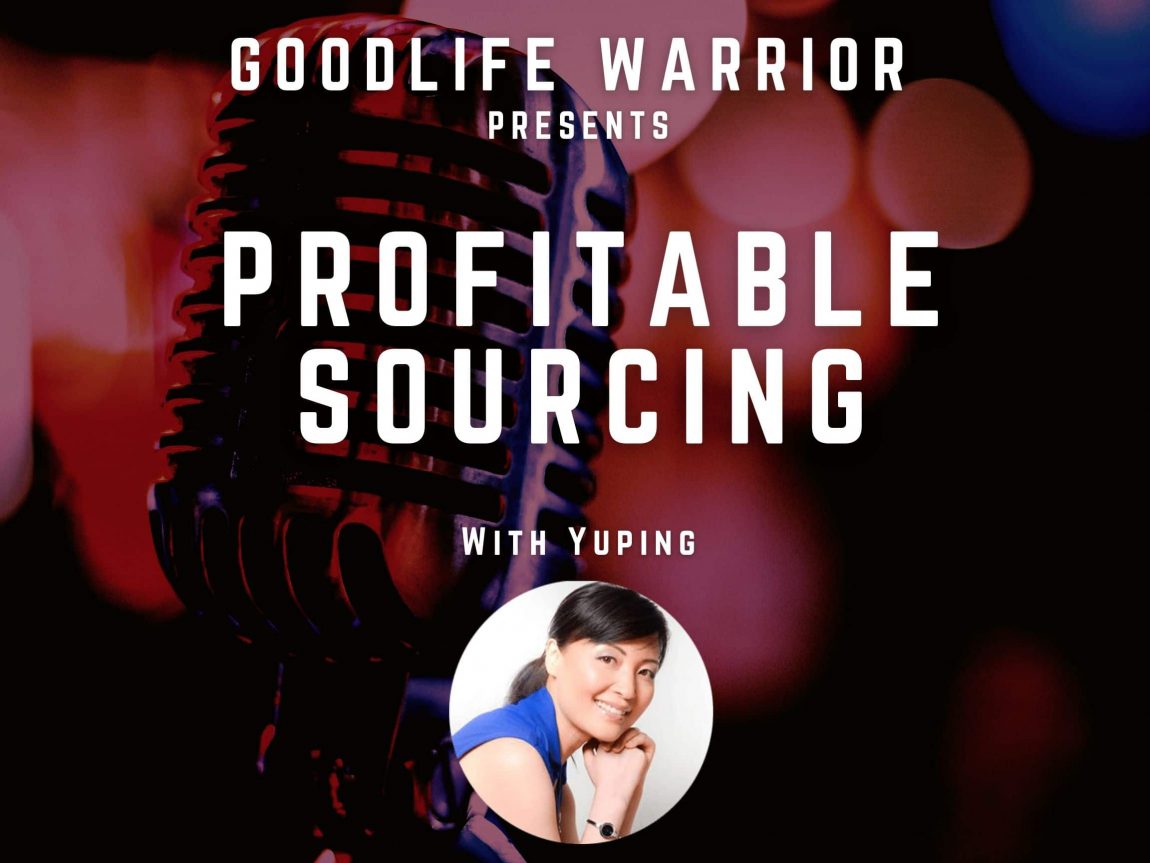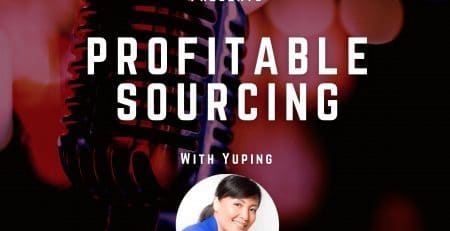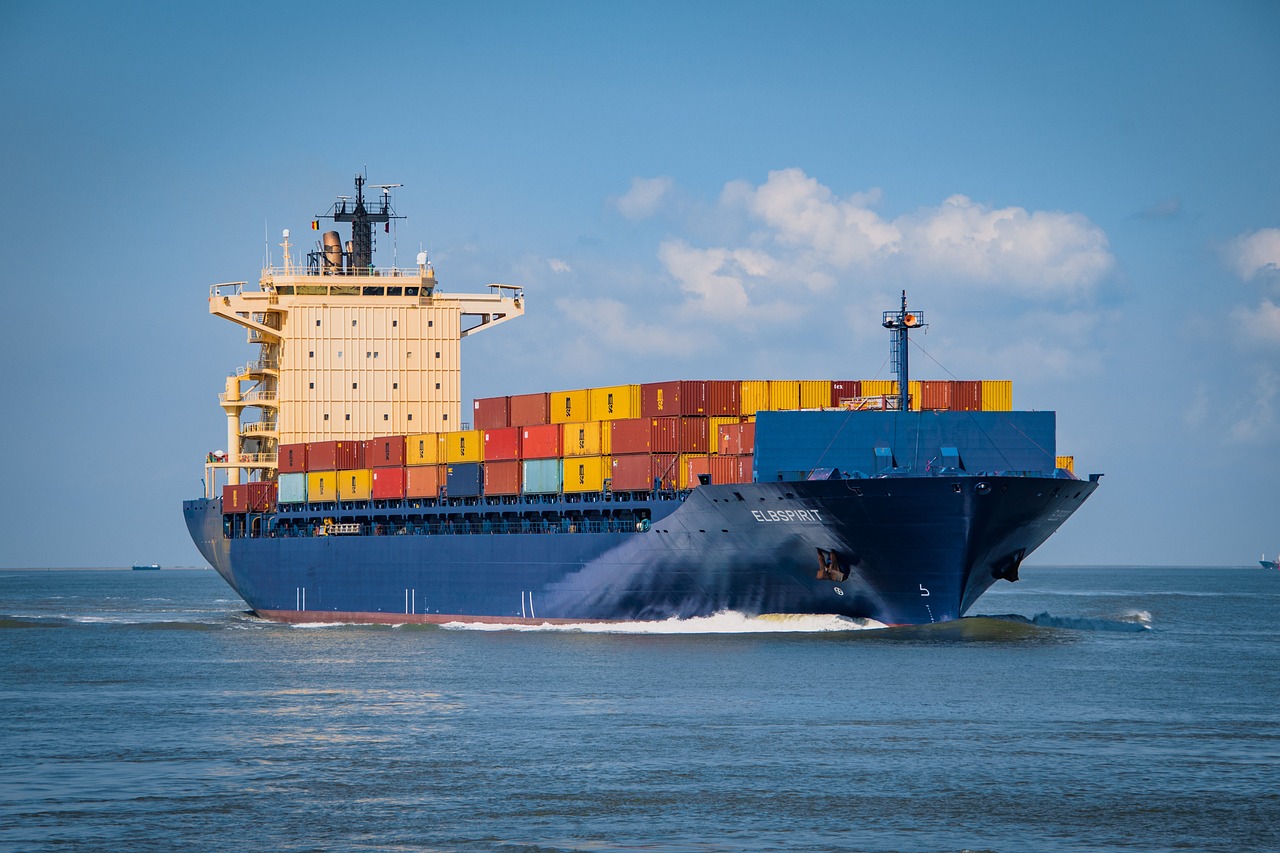If you are shipping products to Amazon FBA, the last thing you want is the last-minute “surprise”. In this video, I am going to give you some tips on what shipping terms to avoid in order to minimize your risk and preventing last-minute surprises. Enjoy 😊
[buzzsprout episode=’9931186′ player=’true’]
Where to subscribe: Apple Podcast | Google Podcasts | Spotify | Stitcher | RSS
Full Transcript:
Hello, everyone. Welcome back to the Goodlife Warrior Channel. If you are running a eCommerce business, do you remember what’s the shipping term you ask your supplier to ship your products. If you’re just getting quotes you haven’t started your business yet, what is the shipping term you ask your supplier to quote you the product price? Is that Ex Works, FOB or DDP.
These three are the most commonly used incoterms. If you are using DDP as your shipping term, this video is for you because I want you to be fully aware of the risk involved in using the DDP shipping term.
Hello, my name’s Yuping Wang I’m the founder of Sourcing Warrior. If you are new to this channel, welcome. If you are looking for professional sourcing knowledge, this is your place. You can find all kinds of free resources on sourcing warrior.com, including the incoterms that we are talking about today.
Before we talk about the risk involved in using DDP shipping term, let me make sure you fully understand what DDP does for you. If we compare the 11 incoterms side by side, you will see under the Ex Works shipping term, the supplier has zero responsibility. All they need to do is to put your product on their shipping dock. It’s there for you. If you don’t pick it up, it’s going to be there for you for a long time. So your responsibility is a hundred percent. You need to use a freight forwarder to go to their dock, pick it up, export out of their country, and then import to your destination country, pay your tax and duty and deliver to the final address.
Under the DDP shipping term then the supplier’s responsibility from zero now to a hundred percent, they need to export the product. They need to pay the import tax and duty in your destination country. They need to deliver to the final destination you specified. A beautiful incoterm, DDP. You do nothing. This is exactly why many beginners choose DDP shipping term, because this is a hands off approach. I don’t want to be bothered. I want my supplier to handle everything for me.
There is nothing wrong with using DDP if the supplier can be trusted. What is happening now that makes the DDP shipping even more riskier than before? You know, the shipping cost has gone up 3, 4, 5 times than before. If you gave a purchase order to a new supplier, two, three months ago under DDP shipping term. Today the product is ready, but the supplier may not be able to send your product under that old DDP shipping price because the shipping cost has gone up so much if they send you the product under that old price, they will lose money. Now they’re going to ask you to pay more.
You have two options, one you’re pissed off. I want to dispute my order. If you do that, you put your deposit at risk and you’re going to lose the bond of time, right? In developing the product. The option number two is to pay more therefore, you can get your product, get your product launched as a beginner. Now, what is your profit margin impact? Have you thought about it? If you pay more, your margin is no longer there.
That is the risk when you deal with the new supplier under the DDP shipping term, they give you a price that is so attractive. Please do think about it down the road, can they honor the price? If this is the first time dealing with the supplier, be very careful using that DDP and trust that DDP price. Another risk with DDP shipping is the unpaid duty.
A lot of times you will get a quote from the supplier that they are going to send your shipment under DDP all the way to the destination address. However, in reality, the supplier will pay for the shipping to the ocean port or the airport. And suddenly you will get a call from the freight forwarder they used or DHL or FedEx. You know, some of you already got the call and saying that you need to pay for the duty. You are the importer of record.
If the sender doesn’t pay for the duty, you are responsible for paying the duty. Otherwise your shipment will be rejected because it cannot be cleared. You see, this is crazy annoying because either you pay duty or you are not going to get the shipment. If you do pay the duty, if the duty is pretty high, let’s say it’s 25%. Now it’s going to impact your margin pretty bad, right? Now if you want to minimize the risk in using DDP shipping term, I encourage you to use either the Ex Works or FOB shipping term.
This way you will have a better control over your profit margin because you know your shipping cost, and you will have a better visibility to your shipment. If you’re dealing with your own freight forwarder, you know exactly when your shipment is being picked up and when it’s going to be delivered because you are communicating back and forth. Under the DDP, the supplier using their own freight forwarder, maybe it’s a Chinese freight forwarder, you don’t really have a way to communicate and track your shipment.
In Sourcing Warriors Facebook Group, I highly recommend a very reliable freight forwarder. Feel free to join Sourcing Warrior’s community Facebook and get her information. Now, if you really want to use the DDP shipping term, simply because you just don’t want to deal with shipping issues or you trust your supplier, you don’t mind using the DDP shipping term. This is what I want you to do.
Number one, make sure you specify DDP shipping incoterms in your purchase order. None of these offline conversations the supplier said, “I’ll take care of shipping. You don’t have to worry about it.” None of that matters. What matters is in your purchase order, you need to specify DDP shipping as your incoterm.
Number two, please add an additional term for your DDP shipping. Just write it like this. “The supplier agrees to honor the DDP shipping price as specified in this purchase order even if the shipping cost increases at the time of the delivery.” Yeah. So copy this sentence on and put it on your purchase order. This is to prevent two, three months later when the shipment is ready, the supplier give you, “Yeah, the shipping cost has gone up. I cannot send you the shipment. You need to pay more.”
That really is going to be so annoying. If you are a beginner, you really don’t want to deal with that.
I hope you enjoyed today’s video. If you want to learn more about the incoterms there is a free download on sourcingwarrior.com. Just go to the resource area and download a copy to yourself. I think it’s very helpful information for you to fully understand what Ex Works does, what FOB does and what DDP does for you.
If you’re in the eCommerce business, these three terms you’ll need to master. I look forward to meeting you in the Sourcing Warriors Facebook group. I wish you a great day. If you love today’s video, just do a quick, “Like.” I would appreciate that. I’ll see you in the next video.
Check out the link, the Sourcing Warrior Mastermind link, undertake Sourcing Warrior’s quiz to find out your sourcing IQ. Make it fun, learn something, have a great day. I’ll see you in the next episode.
Video Version:
[embedyt] https://youtu.be/1nlK_DfWIJI[/embedyt]







